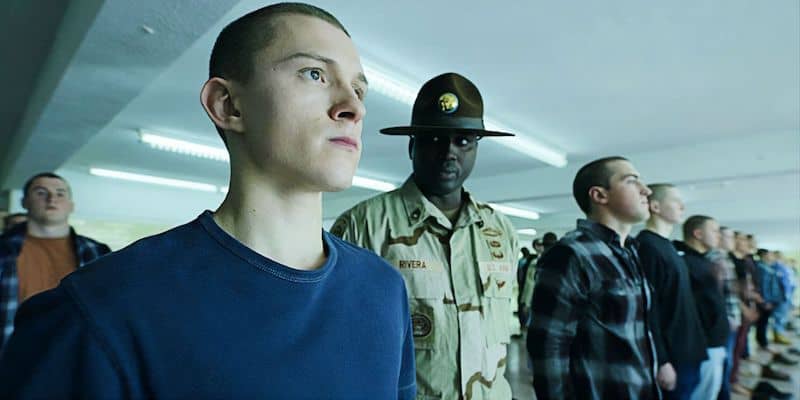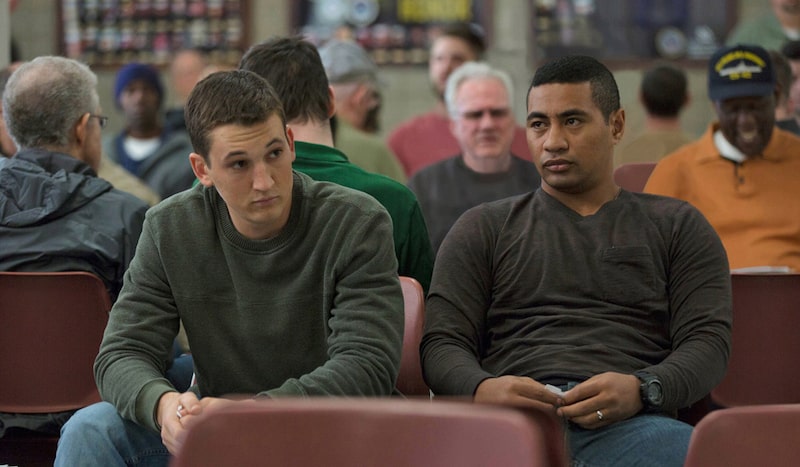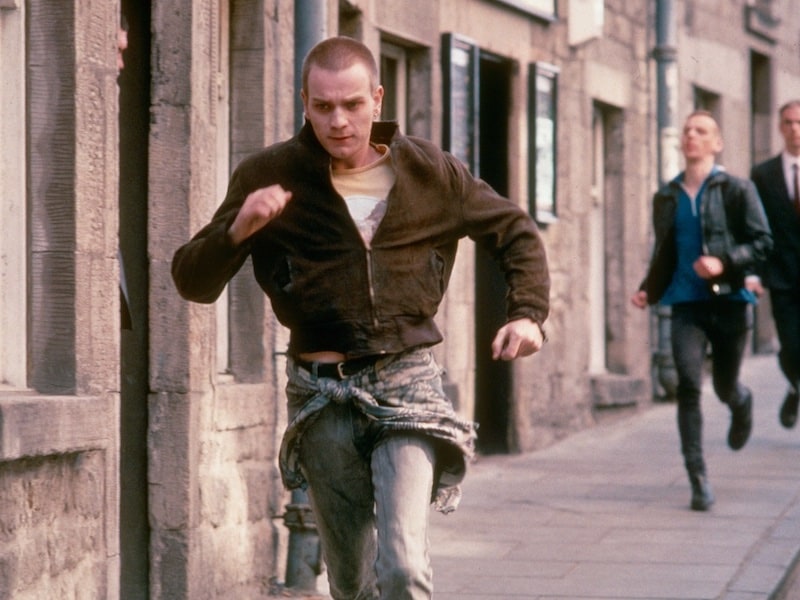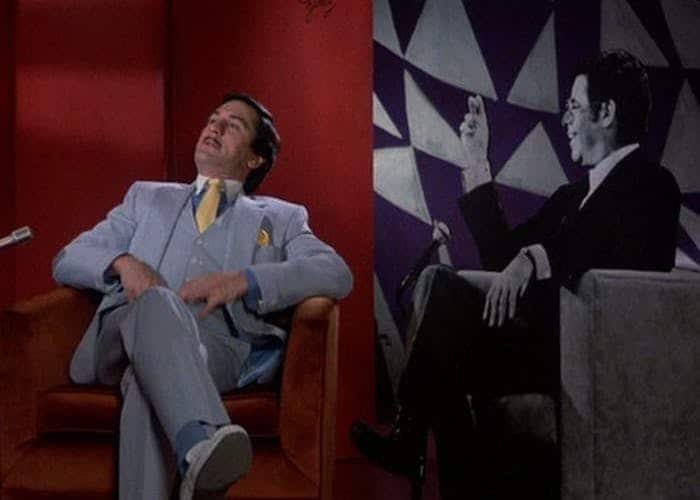
Part Four: Home
Thank You For Your Service (2017)

The Hurt Locker ends with one of the most concise and memorable looks at a soldier’s homecoming, and those final moments overlap it with this chapter of Cherry. But if you want a whole movie focused on veterans specifically of the Iraq War, then Thank You For Your Service is a strong, underseen feature also based on a memoir and dealing with similar experiences with PTSD as those shown in the Russos’ movie, albeit a little less stereotypically. You’ve got the drug abuse and the punching of walls and other items on the checklist, but it’s given the time to be powerful rather than cliched in its portrayals of familiar tropes as it follows multiple soldiers, led by Miles Teller, in their distinct post-war narratives.
More suggestions: The Deer Hunter (1977) is heavily acknowledged as the movie about the post-war experience, though The Best Years of Our Lives (1946) is the actual best movie of all time about soldiers coming home from war; Born on the Fourth of July (1989) is also a worthy watch; But when it comes to 21st-century conflicts, The Ground Truth (2006), a documentary about the difficulty of today’s soldiers returning from war and why things are different now, is a must.
Part Five: Dope
Trainspotting (1996)

The fifth chapter of Cherry is the hardest to pick one movie for since it’s almost like two chapters in one. First, you’ve got the characters descending deep into addiction, and second, you’ve got the main character regularly robbing banks to feed that addiction. I settled on Trainspotting because it’s another heavily stylized film and therefore probably one that had more of an impact on the Russo brothers. Their surreal flourishes fit with Danny Boyle’s directorial breakout, which follows a group of Scottish heroin addicts (including one played by Ewan McGregor in his own breakout role) who ultimately turn to criminal endeavors. Still, pay particular attention to the mix of titles in the suggested viewing section below for a greater sense of this section of Cherry‘s DNA.
More suggestions: Gus Van Sant’s Drugstore Cowboy (1989), which is also based on an autobiographical novel written by the author while in prison and is also about addicts who turn to robbery, though their acts are against pharmacies for direct theft of opioids rather than money to buy drugs; Darren Aronofsky’s Requiem for a Dream (2000), which is another highly stylized film about heroin and prescription drug addicts; Sidney Lumet’s Dog Day Afternoon (1975), which depicts a single bank robbery gone wrong that, like two of Cherry‘s, involve a crew member on the job chickening out and fleeing at the start of the crime; and Quentin Tarantino’s Reservoir Dogs (1992), which fulfills the need for a Tarantino on this list while also being about a dysfunctional bank robbery after which one character is similarly laying in the back of a getaway car bleeding from a gunshot wound.
Part Six: Epilogue
The King of Comedy (1982)

Cherry shows the Russo brothers to be heavily influenced by Martin Scorsese movies, but the one that’s most obviously akin to what they’re doing with this adaptation is Goodfellas, especially given the heavy use of voiceover. Others have claimed The Wolf of Wall Street as a blood relative. But for the purposes of recommending a movie tied to Cherry‘s epilogue chapter, The King of Comedy came to mind as another option for a Scorsese pairing. While very little of the movies’ main content links together, the endings of each have their protagonist going to prison, where they write their life story (Cherry‘s memoir writing is somewhat implied, to anyone who knows about its source material, in a single shot), and that story is even expected to be adapted into a film. The epilogue in The King of Comedy, however, is clearly a dream for the character Rupert Pupkin, while the one in Cherry is a dream come true for the real main character, Nico Walker.
More suggestions: The Shawshank Redemption (1994), which is the quintessential prison movie, and the brief shot of Cherry‘s protagonist laughing while watching a movie in prison is reminiscent of a scene in Frank Darabont’s IMDb user favorite — also Holland and Joe Russo took a tour of the prison used for Shawshank while filming Cherry in Ohio; Baby Driver (2017), which similarly ends with its main character apprehended by police and sent to prison, and then we see his release and reunion with his girl, who is standing outside the prison gate with a car to take him home. Those last moments of Baby Driver with the release seem like a dream, though, especially since the character doesn’t seem any older. They didn’t even bother to give him a mustache.
Related Topics: Cherry, Movie DNA
